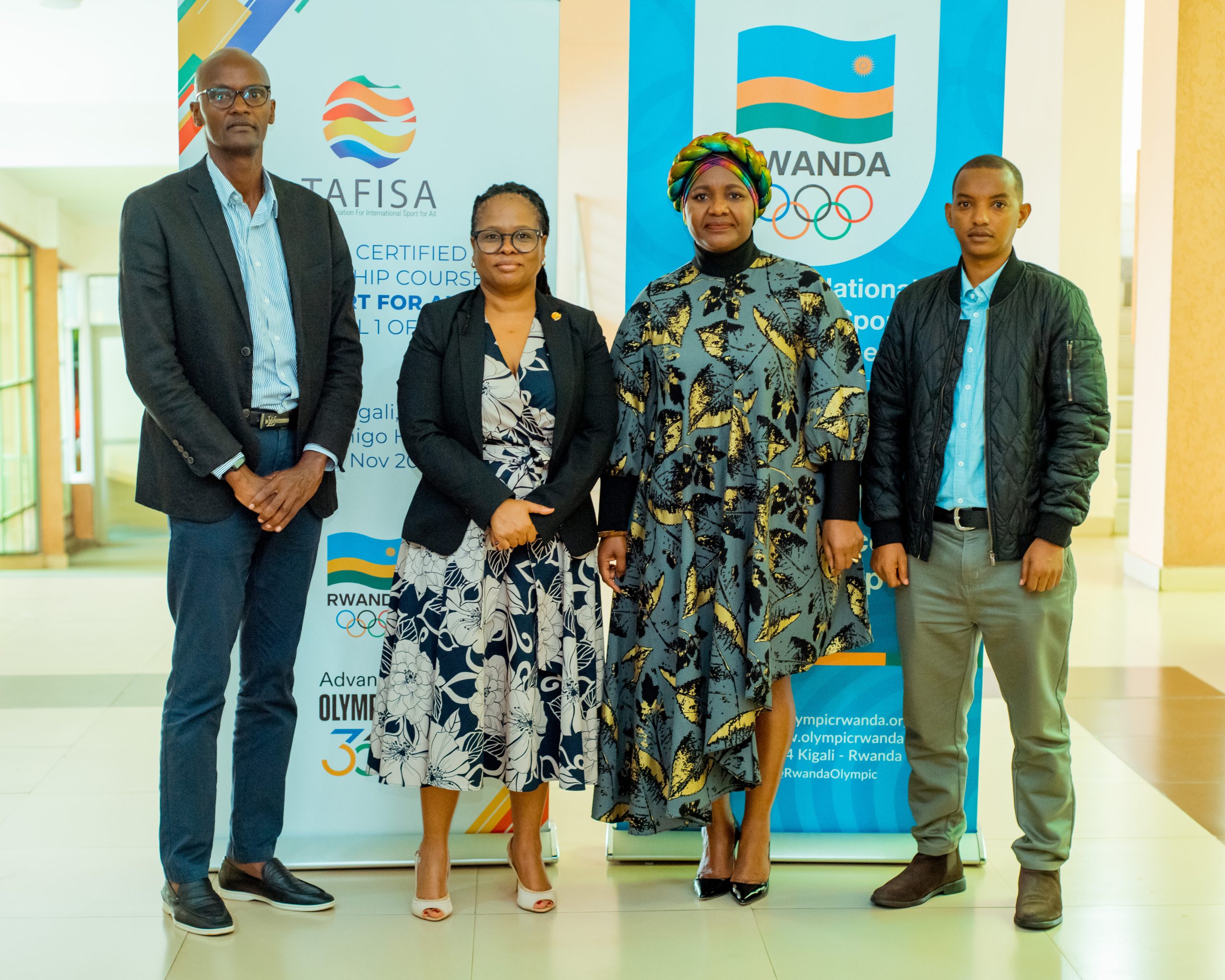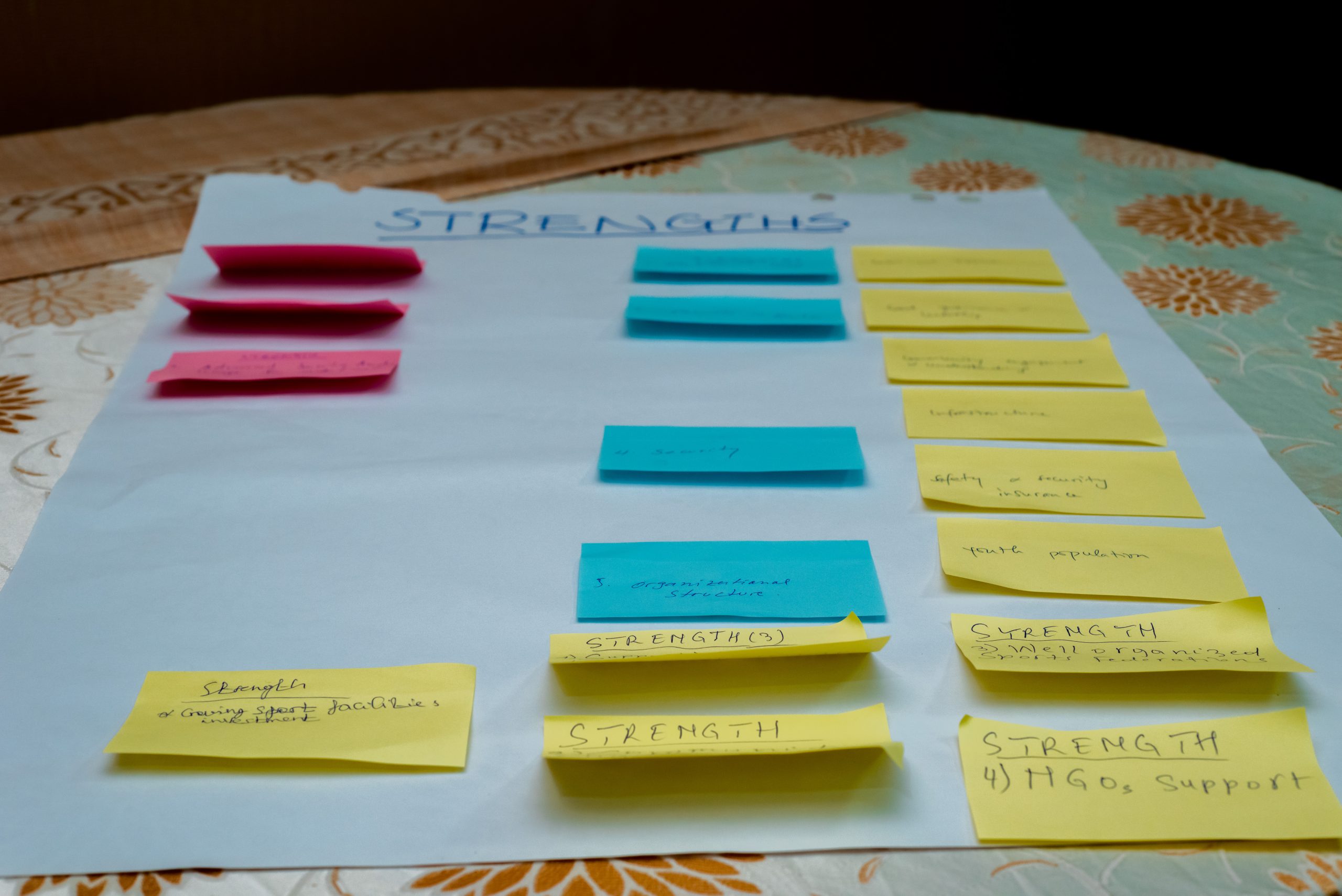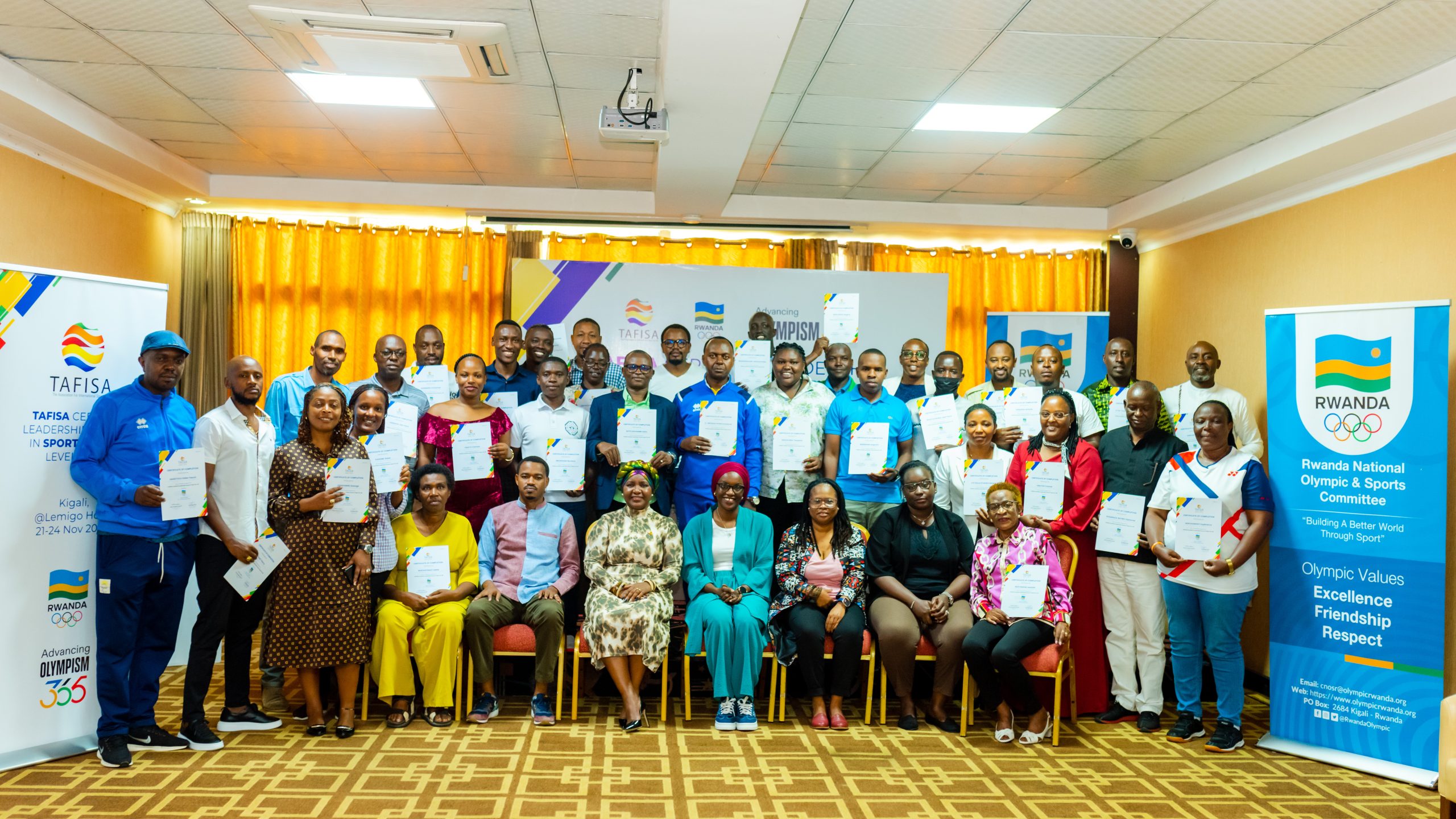From November 21–24, 2024, the Rwanda National Olympic and Sports Committee (RNOSC), in partnership with The Association For International Sport For All (TAFISA) and the International Olympic Committee (IOC), hosted the TAFISA Certified Leadership Course (CLC) Level 1. Held at Lemigo Hotel, Kigali, this four-day workshop aimed to enhance leadership within the global Sport For All movement, aligning with the Olympism 365 Strategy by the International Olympic Committee.
The workshop convened diverse stakeholders, including representatives from Rwanda’s Ministry of Sports, the Rwanda Defense Force, Rwanda National Police, Kigali City, and national sports federations. Facilitated by TAFISA experts Ms. Game Mothibi and Ms. Paulina Lanco, the sessions aimed to foster inclusivity, sustainability, and innovation in Rwanda’s sports sector.

The course was structured around five thematic modules, each offering a unique perspective on advancing Sport For All initiatives:
Game Changers: The Transformative Power of Sport for All Worldwide, exploring the transformative power of Sport for All in driving socio-economic and health benefits.Harmony in Action: Navigating Global Voices in Sport for All Policy and Strategy, focusing on crafting inclusive policies and building collaborative networks.
Shaping Trailblazers: Empowering Positive Leadership in Sport for All, highlighting leadership styles and strategies to foster community-focused actions.
Striving for Success: Mastering the Art of Designing and Delivering Impactful Initiatives, providing tools for designing inclusive, engaging Sport for All initiatives.
Sporting Futures: Building Happy and Healthy Communities for Tomorrow, emphasizing sustainable approaches for long-term impact in Sport for All programs.
Participants engaged in interactive group exercises, including SWOT analyses of Sport For All in Rwanda, where they identified a variety of advantages and challenges faced by sport for all initiatives in Rwanda. These discussions laid the foundation for actionable strategies to advance inclusivity and accessibility in sports.

Networking exercises encouraged participants to map out stakeholders and beneficiaries, such as ministries, sports federations, vulnerable groups, and communities. Effective outreach methods, including public awareness campaigns and media engagement, were identified as critical for success.
The workshop concluded with a certificate ceremony to recognize participants’ dedication. RNOSC 2nd Vice President Ms. Umutoni Salama praised the facilitators and participants for their commitment to fostering inclusivity and collaboration in sports. Facilitator Ms. Game Mothibi encapsulated the event’s ethos: “#SportForAll isn’t just about inclusion—it’s about fostering kindness and support through sports. Understand your peers’ situations and always be ready to offer help.”

